Introduction
Navigating the job market can be challenging for anyone, but for autistic adults, finding roles that leverage their unique strengths and provide a supportive environment is particularly crucial. This article explores ten career paths that are well-suited for autistic individuals, highlighting how their distinct abilities can shine in various fields. From data analysis and computer programming to graphic design and research, these roles offer not only fulfilling employment opportunities but also the chance to foster a more inclusive and innovative workplace.
By understanding and embracing the potential of autistic employees, organizations can unlock exceptional talent and create a more diverse and dynamic workforce.
Job 1: Data Analysis
Data analysis roles are an excellent fit for individuals on the spectrum, who often possess a keen eye for detail and an ability to discern patterns that others might miss. Numerous organizations, such as AutonomyWorks, actively pursue neurodiverse talent for these roles, acknowledging the strengths that individuals on the spectrum contribute. These roles allow professionals on the autism spectrum to leverage their unique skills in coding, analysis, and quality assurance, contributing significantly to their teams and projects. For instance, Dave Friedman, founder of AutonomyWorks, highlights how characteristics such as repetitive behaviors and a strong interest in numbers make technology a natural draw for people with autism. The support systems in place, such as job coaches at auction, further help employees on the spectrum thrive by providing tailored assistance with soft skills and workplace challenges. This not only benefits the employees but also fosters a more inclusive and innovative work environment.
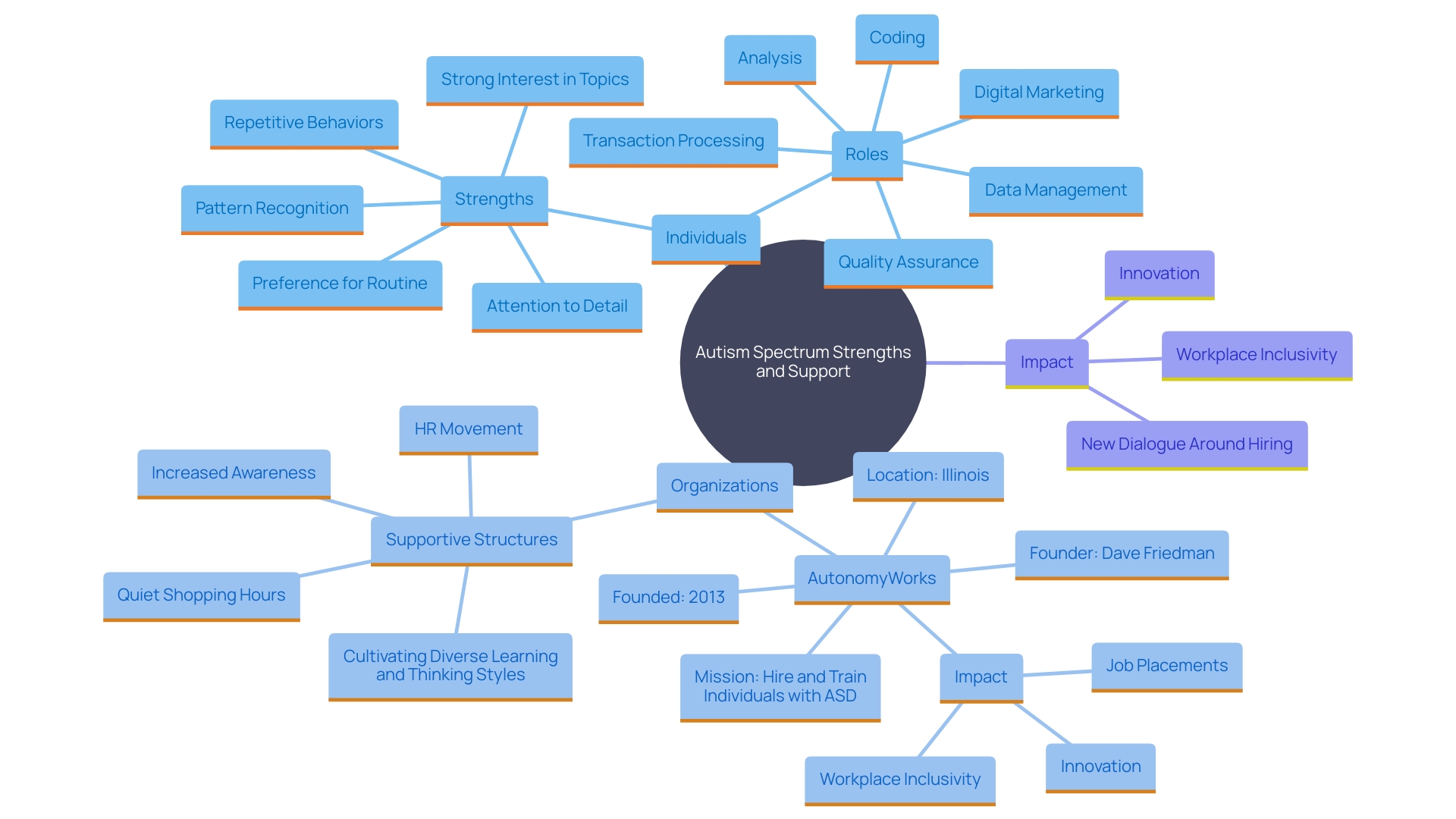
Job 2: Computer Programming
Computer programming is a perfect profession for people with strong logical thinking skills, especially those on the autism spectrum. This field leverages their unique strengths in coding, problem-solving, and creating software. 'Christopher Manente, executive director of Rutgers Center for Adult Autism Services (RCAAS), emphasizes that employment is a critical area often neglected for adults on the spectrum, with half to three-fourths of those seeking work being unemployed.'. RCAAS offers programs like Supporting Community Access Through Leisure and Employment (SCALE) to enhance participants' success in employment.
Companies like Microsoft, Dell, and Ford have recognized the importance of making workplaces more accessible for neurodivergent employees. As autism diagnoses increase, with the CDC reporting that 1 in 36 8-year-olds in the U.S. has autism, these companies are adapting to better support this talent pool. The Autism @ Work Playbook emphasizes the necessity of not only hiring neurodivergent people but also supporting their career development, as it can be difficult for them to recognize and promote their career paths.
Furthermore, initiatives such as Skills Analysis and Recruitment Seminars, created in collaboration with Freie Universitaet Berlin, evaluate and cultivate the cognitive and technical abilities of people on the spectrum, equipping them for fulfilling employment. This approach helps bridge the gap in the talent market, as many companies are now seeking skilled workers. By fostering an inclusive environment, organizations can harness diverse perspectives and skills, ultimately benefiting both the employees and the workplace.
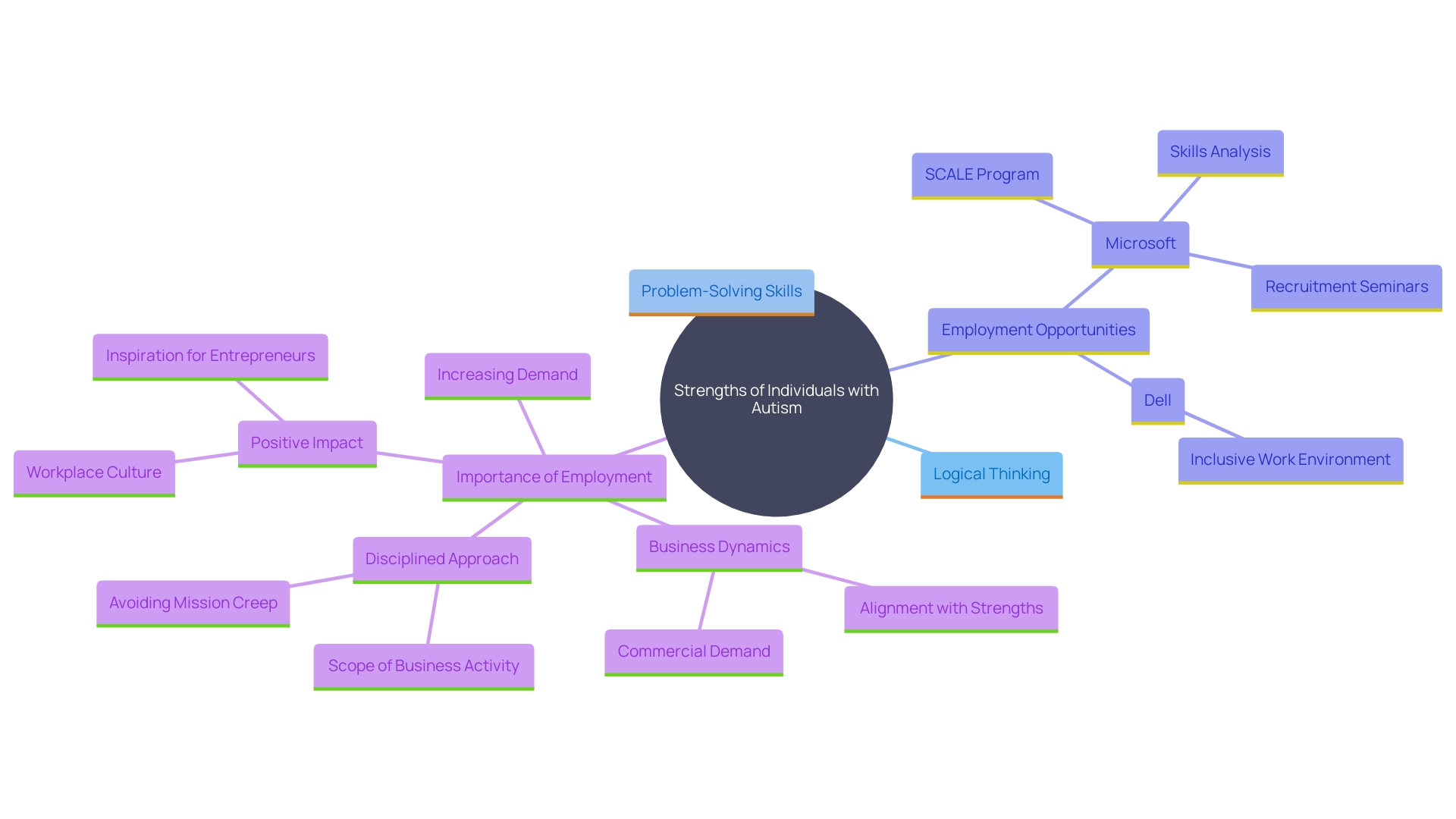
Job 3: Graphic Design
Graphic design provides an exceptional platform for creative expression, especially for autistic adults. This field enables people to leverage their unique perspectives and strengths, creating visually appealing designs for digital media, branding, or advertising. The intersection of neurodiversity and creativity is especially impactful, as it promotes inclusivity and accessibility in the creative industries. Autonomy Works, for example, hires and trains people with autism for tech-related roles, demonstrating the value of neurodiverse talent in the workplace. Their success stories, such as Evan's decade-long tenure as a senior analyst, highlight the potential for career growth and the importance of supportive work environments. By breaking stereotypes and acknowledging the diverse contributions of neurodivergent people, we can cultivate a more inclusive and dynamic creative industry.
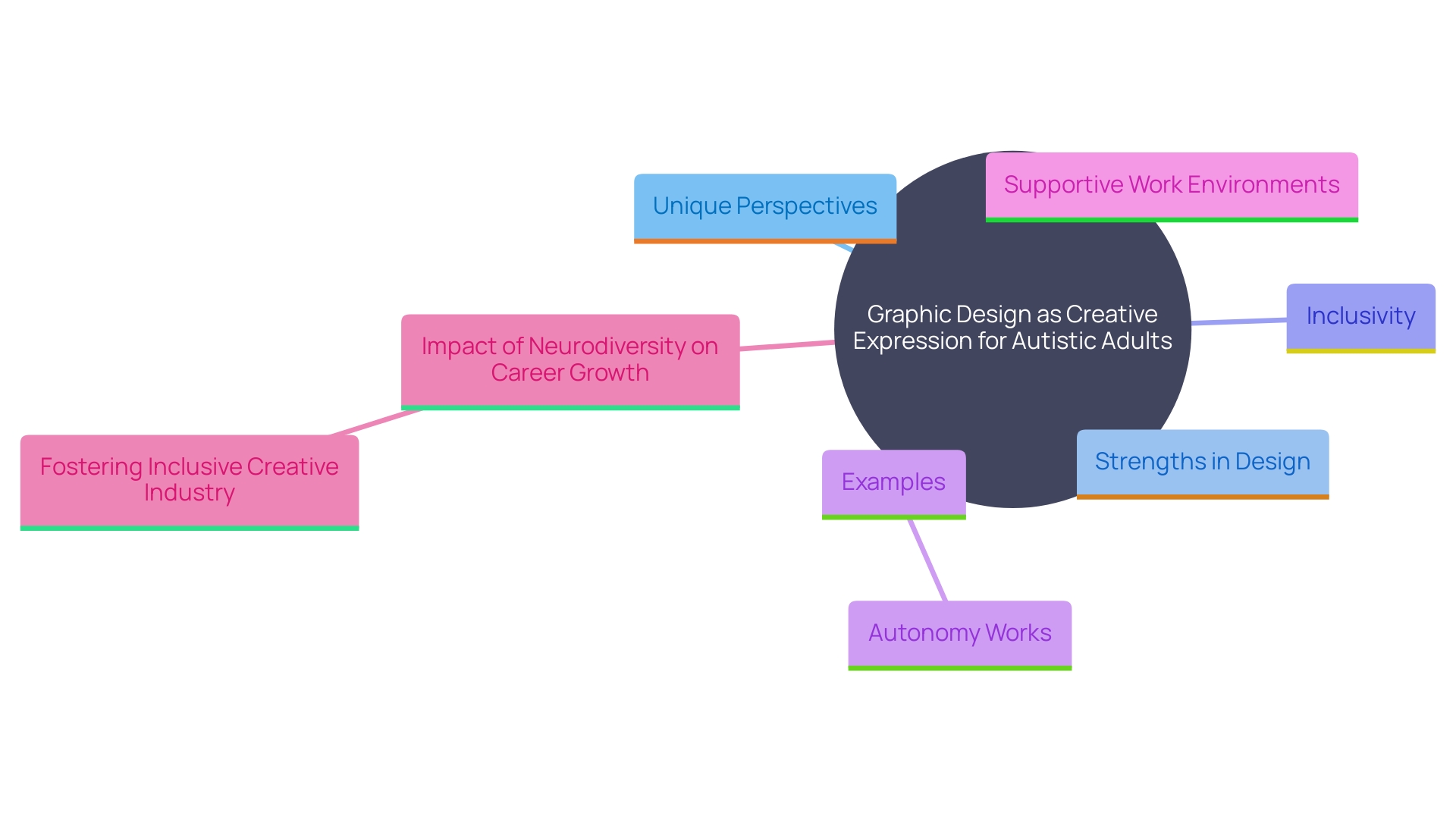
Job 4: Laboratory Technician
Laboratory technician roles are ideal for individuals who thrive on precision and detail, making them particularly suitable for adults on the autism spectrum who often excel in these areas. These positions require a meticulous approach to following protocols and contribute significantly to scientific research and testing. As per a recent study, many people on the autism spectrum pursue rewarding careers with chances for advancement and laboratory technician positions provide exactly that. Inclusive research, which values the unique strengths of autistic researchers, has shown that diverse perspectives can lead to higher quality outcomes and innovation in scientific studies. For instance, the head of the Autism Phenome Project at UC Davis has revolutionized the culture of the MIND Institute by incorporating a diverse pool of study participants, highlighting the importance of varied viewpoints in research. Moreover, companies that actively seek to employ neurodiverse people often outperform those that do not, highlighting the economic and social advantages of inclusive employment practices.
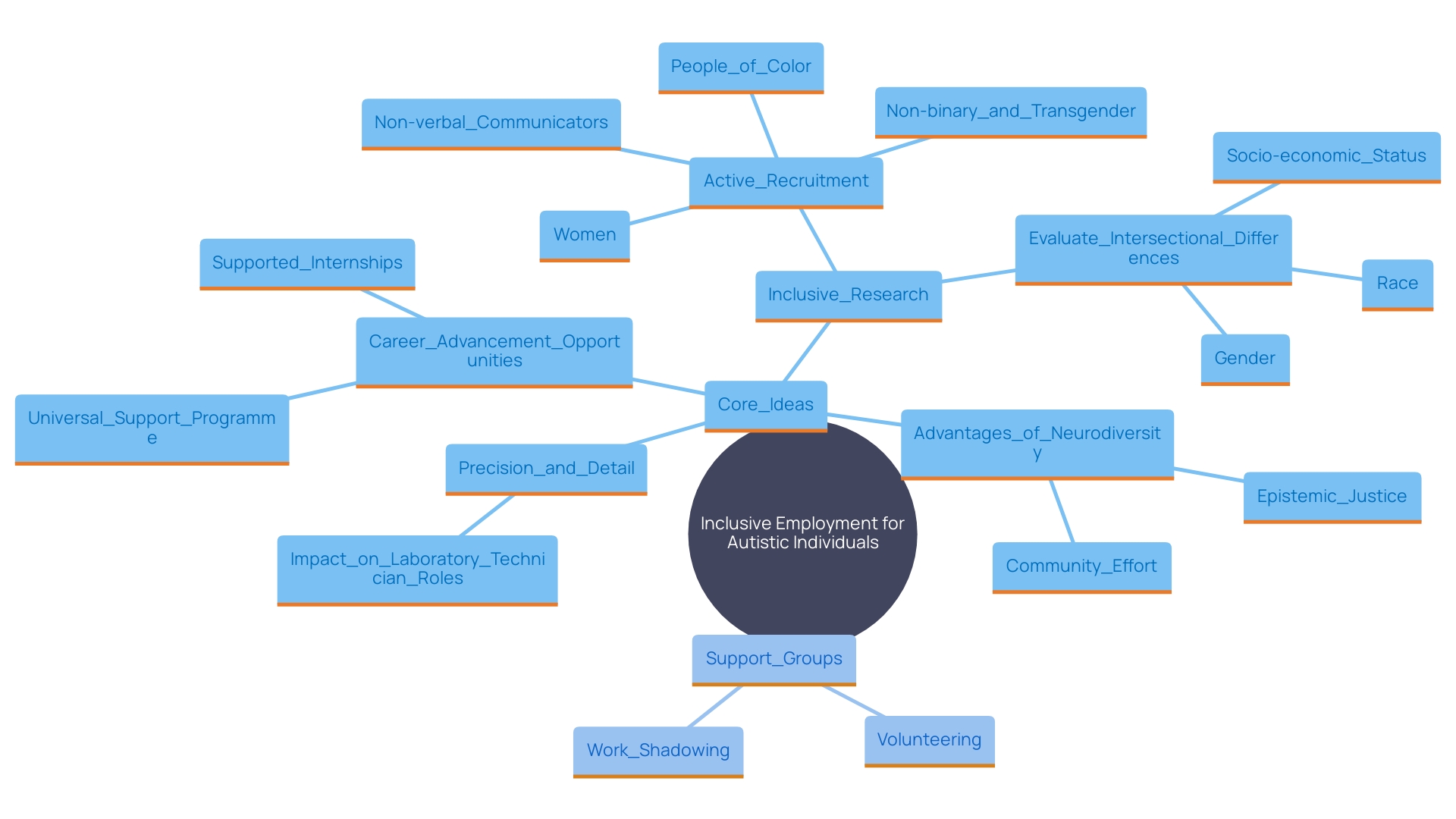
Job 5: Librarian
Working as a librarian not only involves organizing and sharing information but also fostering an inclusive environment where everyone can access knowledge. This role is particularly well-suited for people who have strong organizational skills and a passion for helping others. Libraries, such as the West Harrison branch of the Harrison Public Library, emphasize the importance of creating spaces tailored to different age groups and needs. The children's room, for example, is dedicated to young patrons and those accompanying them, ensuring a focused environment for learning and exploration.
Furthermore, libraries are progressively acknowledging the necessity to assist people with autism. According to Christopher Manente, executive director of Rutgers Center for Adult Autism Services, employment opportunities are crucial for enhancing the quality of life for adults on the spectrum. Programs like Supporting Community Access Through Leisure and Employment (SCALE) are making significant strides in helping people on the spectrum succeed in the workforce, including positions in libraries.
Furthermore, studies suggest that liberal arts college libraries (LACs) are well-suited to support students on the autism spectrum because of their small populations and individualized services. However, there is a need for more training and systematized approaches to better meet these students' needs.
Public trust in libraries remains strong, as they are seen as inclusive and welcoming spaces. As Rebecca Toh eloquently puts it, libraries are a glimpse of the 'better world' we all aspire to live in, where kindness and care are the norms. This atmosphere makes libraries not just places of knowledge, but also sanctuaries of community and support.
Job 6: Accounting
Accounting positions are highly compatible with people on the autism spectrum because of the field's focus on precise attention to detail and strong numerical abilities. This career path enables people to work independently while ensuring the accuracy of financial records, leveraging their unique strengths. As stated by the World Economic Forum, 85% of people with autism in America are without jobs, emphasizing the urgent requirement for more inclusive hiring practices. Supported employment programs and internships can offer individuals on the spectrum with the necessary tools and experience to excel in such roles. For instance, Bank of America’s Support Services division has successfully created a workplace for neurodivergent employees, demonstrating that with the right assistance, individuals on the spectrum can excel in their careers, contributing significantly to their organizations and communities.
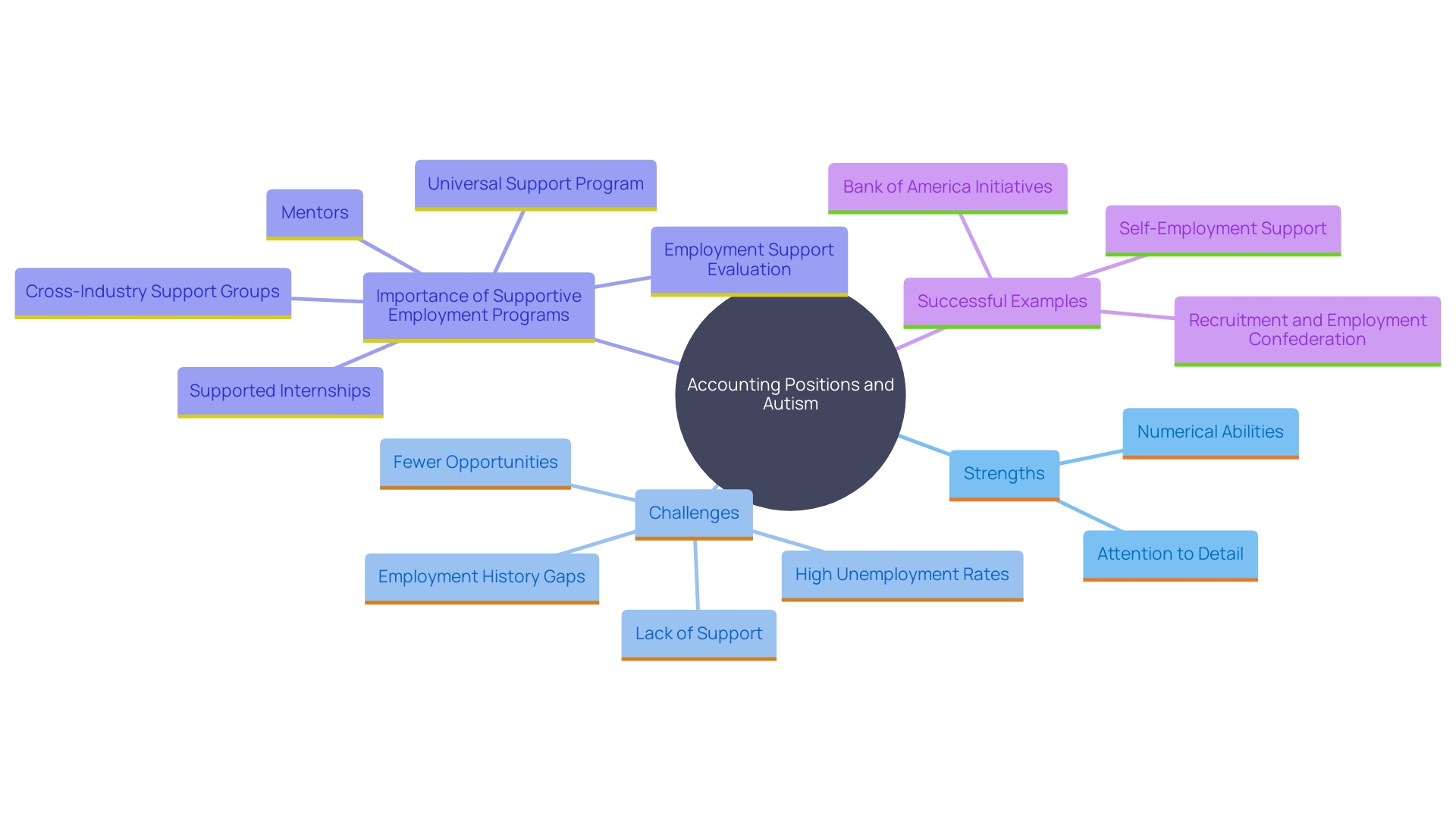
Job 7: Research
Research roles provide a platform for individuals on the autism spectrum to explore innovative ideas and engage in meaningful projects. The newly formed Autistic and Neurodivergent Scholars Working for Equity in Research (ANSWER) group illustrates how individuals on the spectrum and non-spectrum researchers can work together successfully. ANSWER, a component of the Autism Intervention Network on Physical Health (AIR-P), consists of researchers with neurodivergent backgrounds who offer unique viewpoints as both scientists and people with lived experiences. This dual insight is invaluable in assessing and advancing research projects relevant to enhancing the lives of people on the autism spectrum.
The Interagency Autism Coordinating Committee (IACC) has also highlighted the importance of inclusive approaches in autism research, emphasizing the need for diverse voices in the field. The inclusion of researchers on the autism spectrum leads to higher quality research, as they offer unique strengths in data interpretation and a deeper understanding of the autism community's needs. This collaboration can help bridge gaps in education and employment, ultimately fostering better life opportunities for individuals on the autism spectrum.
A major obstacle to professional advancement for individuals with autism is systemic prejudice and a lack of awareness regarding autism. In spite of these obstacles, numerous researchers on the autism spectrum consider academia to be a rewarding professional journey. They are often more focused and dedicated, making substantial contributions to their fields. However, support systems and tailored opportunities are crucial to overcoming organizational barriers and ensuring career advancement.
Research settings that prioritize comprehensive examination and methodical investigation offer individuals on the spectrum the chance to flourish. By promoting inclusive research practices and supporting individuals on the autism spectrum, we can create a more equitable and innovative landscape in autism research.
Job 8: Engineering
Engineering fields are a natural fit for many individuals on the spectrum due to their strong logical thinking and problem-solving abilities. Whether in civil, mechanical, or software engineering, these professions harness creativity and technical expertise, providing opportunities for individuals on the spectrum to thrive and contribute meaningfully to society.
For example, programs like AutonomyWorks in Illinois are making strides by tailoring tech contract work to match the skills of individuals on the spectrum, such as digital marketing, quality assurance, and data management. This approach not only provides fulfilling employment but also helps shift employer perceptions about the value of neurodiverse talent. As Dave Friedman, CEO of Autonomy Works, notes, “There’s a major lack of awareness, and this creates a lot of uncertainty and fear among employers.”
Moreover, organizations like the ASME Foundation emphasize the importance of mental health and support systems in engineering education and career development. By establishing mental well-being as a core value and providing access to internships and entry-level technical jobs, they create a supportive environment where people on the spectrum can excel.
Real-life success stories, such as Maria’s experience with job coaching, highlight the positive impact of tailored support. By working on self-advocacy and team communication, Maria overcame workplace anxiety, leading to improved job performance and personal growth.
Statistics indicate that while many people with autism pursue career advancement, they frequently encounter underemployment, with estimates suggesting up to 46% may be working in positions beneath their abilities. Bridging this gap necessitates concentrated efforts to align job roles with personal strengths and offer continuous support, allowing adults on the spectrum to achieve their full potential in engineering and beyond.
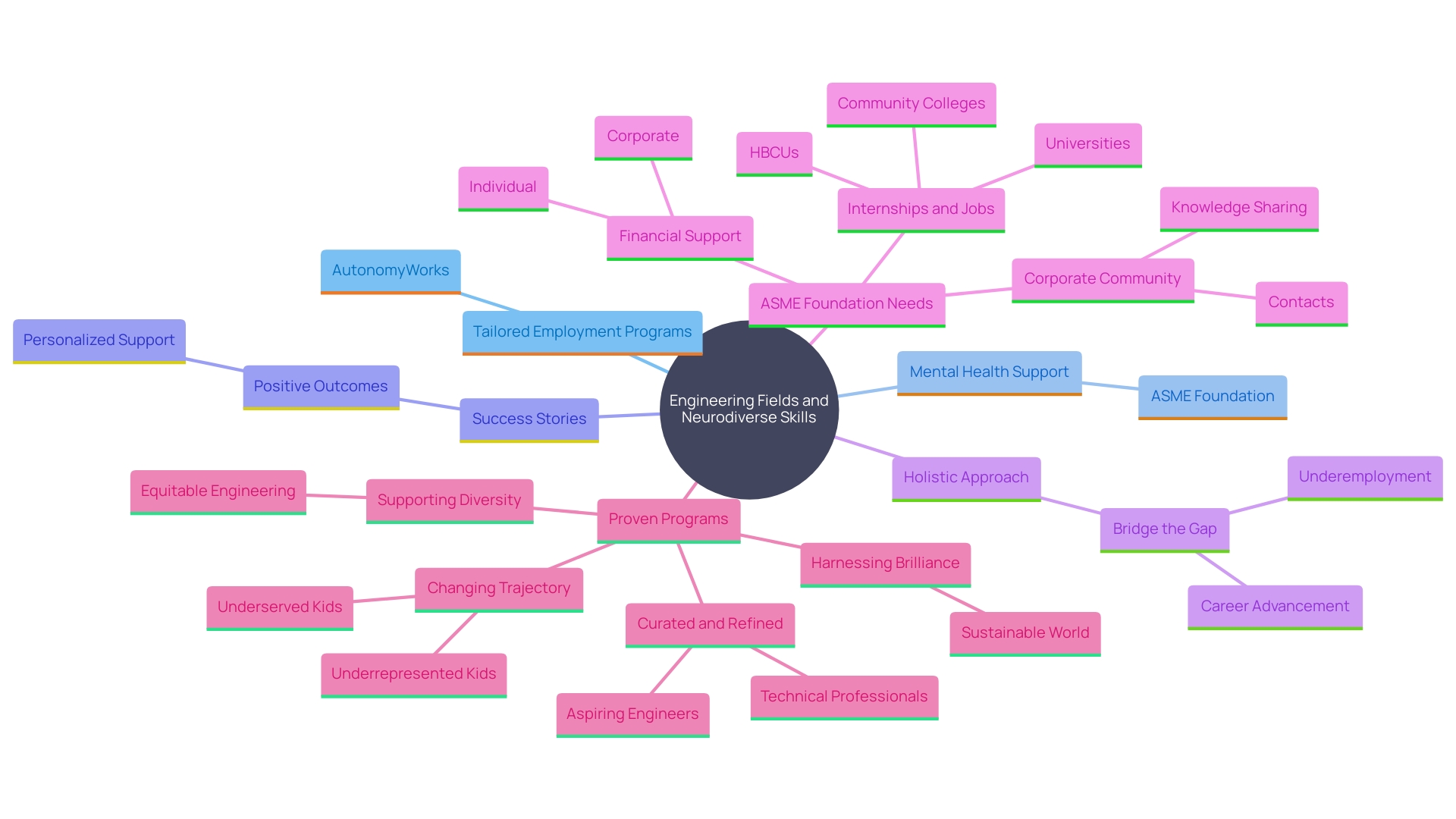
Job 9: Writing and Editing
Writing and editing roles offer a rich avenue for autistic individuals to harness their creativity and language skills. From crafting compelling articles to producing engaging marketing materials and books, these careers can provide fulfilling opportunities. Autistic adults often excel in roles requiring attention to detail and a strong grasp of language, making them well-suited for the publishing industry. Programs like the Carole Blake Open Doors Project by the Blake Friedmann Literary Agency offer vital mentorship and hands-on experience, enabling participants to explore the literary agenting side of the industry. This initiative, which can be virtual or hybrid, provides exposure to meetings, daily tasks, and mentorship, thereby fostering a supportive learning environment.
Moreover, the publishing sector is changing to be more inclusive, acknowledging the necessity to support neurodivergent people. Initiatives such as volunteering with The Publishing Post or gaining experience in a bookshop are excellent ways to build writing expertise and industry knowledge. These experiences not only assist in refining one's abilities but also provide understanding of consumer behavior, sales, and trends, which are essential for advancement in writing and editing.
Data indicate that many individuals on the spectrum seek professional advancement, but encounter various obstacles, such as underemployment and societal bias. However, tailored opportunities and adequate employment support can facilitate their professional advancement. By establishing encouraging and welcoming workplace settings, we can assist individuals on the spectrum to excel in writing and editing positions, enabling them to make significant contributions to the literary realm.
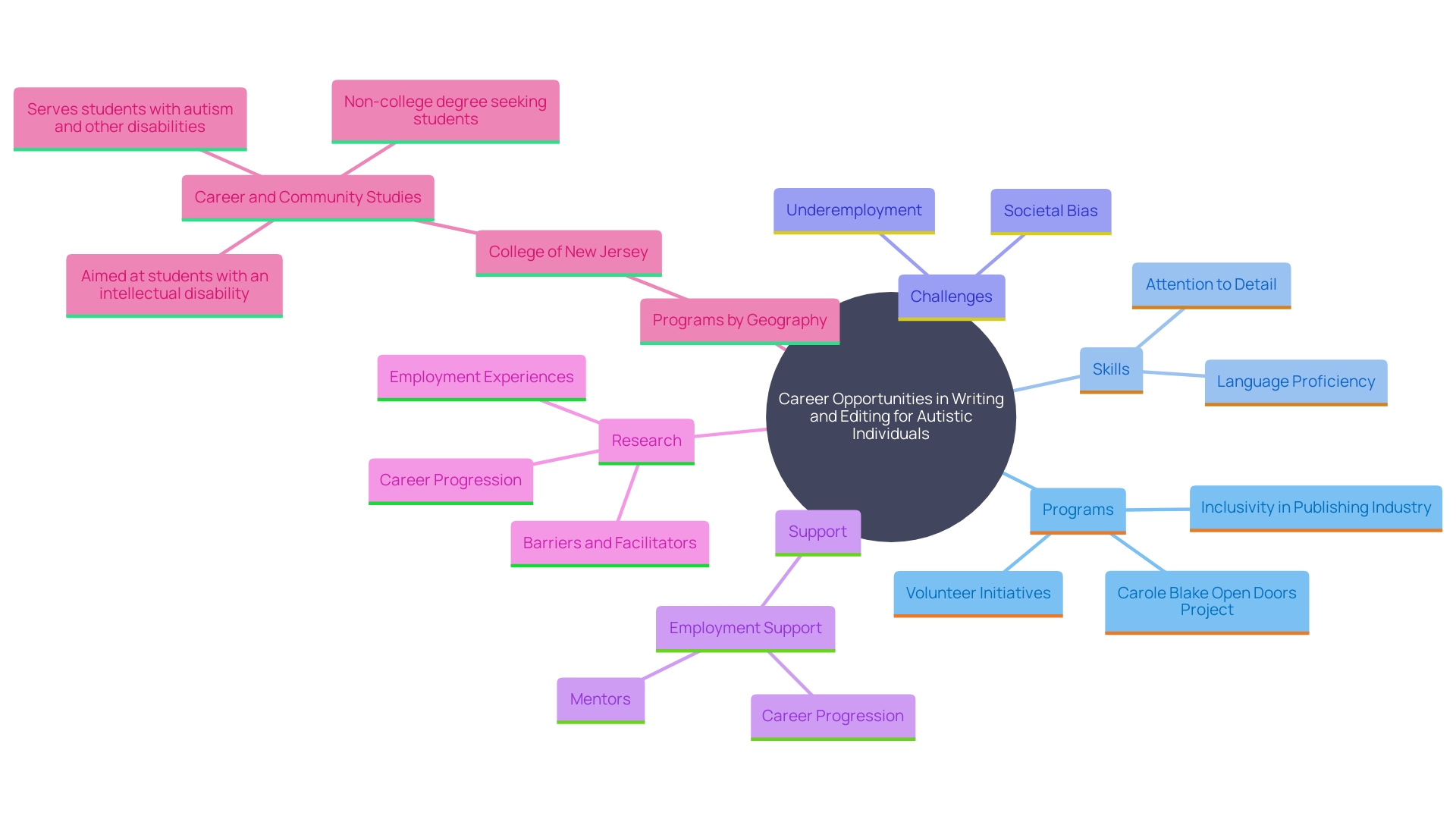
Job 10: Animal Care
Participating in professions related to animal care can provide rewarding chances for individuals on the spectrum. Positions in this field not only enable them to connect with animals, providing essential love and support, but also ensure the well-being of the animals. This connection can be deeply therapeutic and rewarding. According to Christopher Manente, executive director of Rutgers Center for Adult Autism Services (RCAAS), employment remains a highly neglected aspect of life for many individuals on the spectrum. RCAAS's Supporting Community Access Through Leisure and Employment (SCALE) program highlights the significance of incorporating people with autism into the workforce, emphasizing both social assistance and clinical services.
Moreover, inclusive employment practices have shown promising results. For instance, Greif's Iowa facility, formerly known as Lee Container, adopted WIN training and operational changes, including offering part-time employment, which facilitated the hiring and success of employees on the spectrum. This initiative not only improved inclusivity but also boosted morale and productivity across the facility. The success narrative of Grief highlights the potential of inclusive work settings to promote economic growth and improve the quality of life for those with autism.
Statistics reveal a significant gap in employment for people with disabilities, including autism. In 2022, only 21% of people with disabilities were employed. This disparity is even more pronounced among young adults with autism, more than half of whom face unemployment or are not enrolled in higher education within two years of finishing high school. Bridging this gap is crucial, as research shows that companies actively hiring people with disabilities consistently outperform those that do not, demonstrating higher revenues, net income, and profit margins.
Working with animals can foster empathy and emotional awareness, as well as improve fine motor skills. A study from the University of Missouri found that caring for animals like cats can help individuals on the autism spectrum become more empathetic, recognizing and understanding emotions. This emotional growth translates into better self-regulation and overall well-being. Thus, animal care careers not only provide meaningful employment but also foster personal development and emotional health, making them an ideal choice for autistic adults seeking fulfilling and supportive work environments.
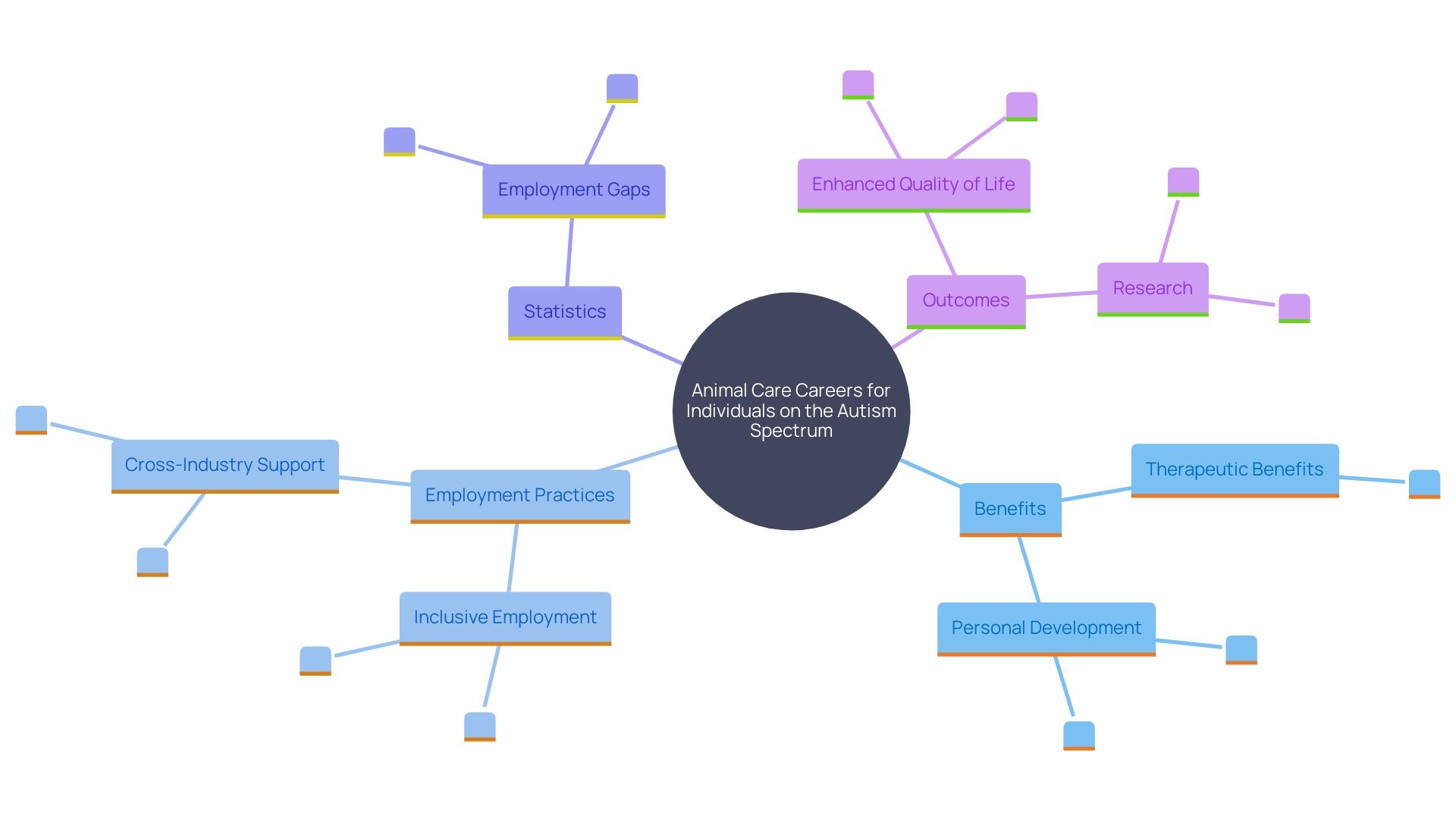
Conclusion
Autistic adults possess unique skills and abilities that can be harnessed across a variety of career paths, as outlined in the exploration of ten well-suited roles. Each position, from data analysis to animal care, highlights the strengths that autistic individuals bring to the workplace, emphasizing attention to detail, logical thinking, creativity, and a passion for helping others. Companies that recognize and support these talents not only foster inclusivity but also drive innovation and success within their organizations.
The article underscores the critical importance of tailored support systems, such as mentorship programs and inclusive hiring practices, which can enable autistic individuals to thrive in their chosen fields. By creating environments that accommodate diverse perspectives and promote personal growth, employers can unlock the full potential of neurodiverse talent. This proactive approach not only benefits the individuals involved but also enhances workplace culture and productivity.
Ultimately, the message is clear: embracing the strengths of autistic adults leads to a richer, more dynamic workforce. As society continues to advance in its understanding of neurodiversity, the commitment to inclusive employment practices will pave the way for a brighter future, where every individual has the opportunity to contribute meaningfully to their communities and beyond.




